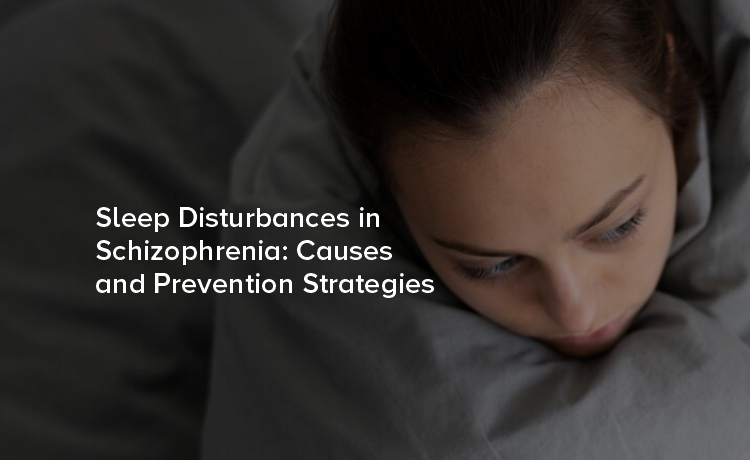
Sleep is the time when our bodies reset, when our minds refresh, and when we process the events and emotions of the day. For individuals with schizophrenia, this essential function can be thrown into disarray. Sleep disturbances are a common symptom of schizophrenia, affecting up to 80% of those diagnosed, often manifesting as difficulty initiating or maintaining sleep, irregular sleep-wake cycles, and reduced overall sleep efficiency.
Understanding the causes of these disturbances is critical to developing an effective prevention strategy.
Schizophrenia is a complex mental disorder characterized by a range of cognitive, emotional, and behavioural symptoms. Among these are disturbances in sleep patterns, which are recognized as a core feature of the illness. These sleep disturbances can significantly impact the quality of life for individuals with schizophrenia, exacerbating other symptoms and even contributing to a worse prognosis.
Lack of sleep or poor sleep quality can significantly impact the symptoms of schizophrenia. Many individuals with the disorder report that their psychotic episodes are preceded by poor sleep.
Specific symptoms such as increased severity of hallucinations, paranoia, and disorganized speech are observed to worsen when the individual has experienced a lack of sleep. Furthermore, these disturbances can amplify the cognitive impairments commonly associated with schizophrenia, making day-to-day functioning more challenging.
Genetic Predisposition
Genetics certainly play a role in both schizophrenia and sleep disorders. There is evidence that certain genes may be associated with a higher risk of developing the disorder and are also linked to sleep disturbances.
Neurobiological Factors
The brain chemistry of individuals with schizophrenia is often significantly different from that of the general population. Neurotransmitters like dopamine and serotonin, which are implicated in the regulation of sleep, are also disturbed in individuals with schizophrenia.
Environmental Triggers
Stress, social isolation, and irregular routines are environmental factors that contribute to sleep disturbances. For individuals with schizophrenia, managing these factors can be particularly challenging.
Antipsychotic medications, the mainstay of treatment for schizophrenia, often have sedating effects and can cause drowsiness, thus impacting sleep. This can present a catch-22 situation for many patients as the treatment for their disorder can also be contributing to their sleep problems.
Awareness and proactive preventive measures are key to managing sleep disturbances in individuals with schizophrenia. Here are several strategies that can be employed to promote better sleep quality:
Establish a Routine
Maintaining a regular sleep schedule can help regulate the body’s internal clock. Creating a bedtime routine that includes calming activities can signal to the brain that it’s time for rest.
Create a Comfortable Sleep Environment
A cool, dark, quiet environment is conducive to good sleep. Minimizing noise and light, and ensuring a comfortable mattress and bedding, are essential.
Limit Stimulants
Caffeine, nicotine, and certain medications can disrupt sleep patterns. It’s important to be mindful of their timing and consumption.
Exercise Regularly
Regular physical activity can improve sleep and overall well-being. However, exercising too close to bedtime can have the opposite effect, so timing is key.
Cognitive Behavioral Therapy
Cognitive behavioral therapy for insomnia (CBT-I) can be particularly helpful as it addresses the thoughts and behaviors that can contribute to sleep difficulties.
Medication Review
It’s important for individuals to discuss their sleep problems with their healthcare provider, who can review medications and make adjustments if necessary.
The Role of Support Systems
Strong support systems are vital for individuals with schizophrenia. Family members, friends, and healthcare providers can play a crucial role in identifying when sleep disturbances become problematic and in supporting efforts to address them.
Educate and Advocate
Education about the importance of sleep and advocacy for strategies to promote sleep can be shared by all involved in the patient's care.
Encourage Regular Follow-ups
Regular visits to the healthcare provider ensure that sleep problems are detected early and that interventions are applied in a timely manner.
Collaborate on a Care Plan
A multi-disciplinary approach ensures a comprehensive care plan that addresses all aspects of the patient's health, including sleep.
While much is known about sleep disturbances in schizophrenia, there is still a great deal of research to be done. The field of chronobiology, which focuses on the internal clocks of living organisms, may offer insights into new treatment strategies.
Technological advancements, such as wearable devices and remote monitoring, hold potential for real-time data collection that can inform tailored interventions.
Sleep disturbances are a significant challenge for individuals living with schizophrenia. Understanding the complex interplay of genetic, neurobiological, and environmental factors is the first step towards finding effective preventive strategies. By addressing sleep problems early and comprehensively, we can improve the quality of life for those living with schizophrenia and contribute to better overall health outcomes.
For individuals and families, the message is clear: diligence in recognizing and addressing sleep problems is a vital aspect of managing schizophrenia. By fostering an environment that values and prioritizes sleep, we can create a foundation for improved health and well-being. With continued research and a multi-pronged approach to care, we are moving closer to a future where sleep and schizophrenia are no longer adversaries but can coexist harmoniously.